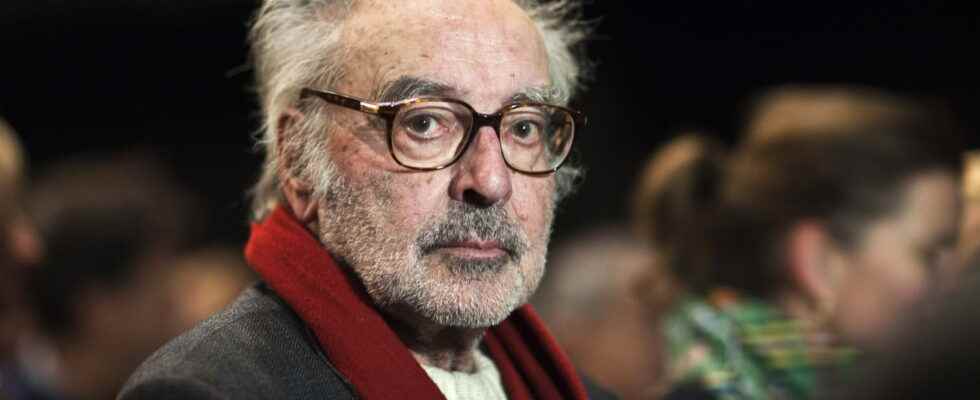Euthanasia and assisted suicide or “assisted suicide” are prohibited in France but legal in other countries such as Switzerland. The Franco-Swiss director Jean-Luc Godard who died on September 13 resorted to assisted suicide in his country.
[Mise à jour le 13 septembre 2022 à 15h35] The Franco-Swiss director Jean-Luc Godard died on September 13, 2022 at the age of 91. He resorted to the resorted to assisted suicide, authorized in Switzerland, the country where he lived. “He wasn’t sick, he was just exhausted. So he had made the decision to end it. It was his decision and it was important for him that it be known“told a relative of the family to Release. In France, assisted suicide is prohibited.
Physician-assisted suicide is a assistance given to a conscious person who asks to die. A doctor prescribes lethal substances and the person ingests these substances or initiates the infusion. Assisted suicide is based on prescription of barbiturates, orally or by injection.
French law prohibits euthanasia and assisted suicide. Two laws govern the end of life.
→ The Law known as Leonetti voted in 2005 and applied in 2006 is an anti-relentless therapeutic law. “It makes it possible to stop treatments that maintain life artificially and, currently, we can go as far as deep and continuous sedation when people at the end of life are not comfortable despite the management of symptoms” informs Dr Dominique Grouille, doctor in the Palliative Care department at the University Hospital of Limoges. There are two scenarios: either the patient is conscious and can express his will the cessation or non-initiation of treatments that keep him/will keep him alive artificially. “When the person cannot speak a collegial procedure makes it possible to take a decision” says the doctor.
→ The second Law dates from 2016. “She reinforced the advance directives (what the person had told his relatives about his end of life) and develops deep sedation and continues until death, which is a very good solution against rebellious suffering” comments Dr. Grouille.
Countries that have legalized or decriminalized physician-assisted suicide are the Luxembourg, the Netherlands, Switzerland, Belgium, the states of Oregon, Washington and Montana in the United States.
The indications for assisted suicide are different depending on the country. In Belgium, the Netherlands and Luxembourg, the person requesting assisted suicidemust be conscious and present intolerable physical or psychological suffering without hope of recovery. She must also be informed of her situation and of the alternatives to euthanasia such as palliative care. In the 3 states of the United States authorizing assisted suicide, it is aimed at terminal patients, whose diagnosis and prognosis (less than 6 months of life expectancy) are verified by two doctors who must certify the absence of mental disorder and inform the person of the alternative represented by palliative care. Two oral requests and one written request from the patient are required. In Switzerland assisted suicide is tolerated when it is carried out for reasons “not selfish.”
Assisted suicide is based on prescription of barbiturates, orally or by injection. “High-dose barbiturates put you to sleep but they also stop breathing” says Dr. Dominique Grouille. “In Oregon, people who apply for assisted suicide have access to a deadly pill” says Dr. Grouille. Studies show that 35% of patients do not use it in the end.
“French people who go to Switzerland with the Dignitas association for a medically assisted suicide pay 8000 euros” informs Dr. Dominique Grouillle.
“Euthanasia and assisted suicide present a fundamental difference : in euthanasia the doctor injects the lethal product, whereas in an assisted suicide is the person who administers the lethal product prescribed by a doctor” informs Dr. Dominique Grouille. “Euthanasia poses an ethical and deontological problem for doctors” considers the doctor for whom deep and continuous sedation is a sufficient response for a pain-free end of life (physical and/or psychological). “The development of palliative care and the training of doctors at the end of life are necessary” he adds.
Thank you to Dr Dominique Grouille, Anesthesiologist-resuscitator, doctor in the Palliative Care department at the University Hospital of Limoges.
Sources: Dr Dominique Grouille, Accompaniment and palliative care, 2021, presentation for externs and IDE
L.Beydon et al End of life, euthanasia and assisted suicide ́: a focus of the French Society of Anesthesia and Resuscitation (Sfar), Annales Françaises d’Anesthesia et de Réanimation, 31(2012)694–70
